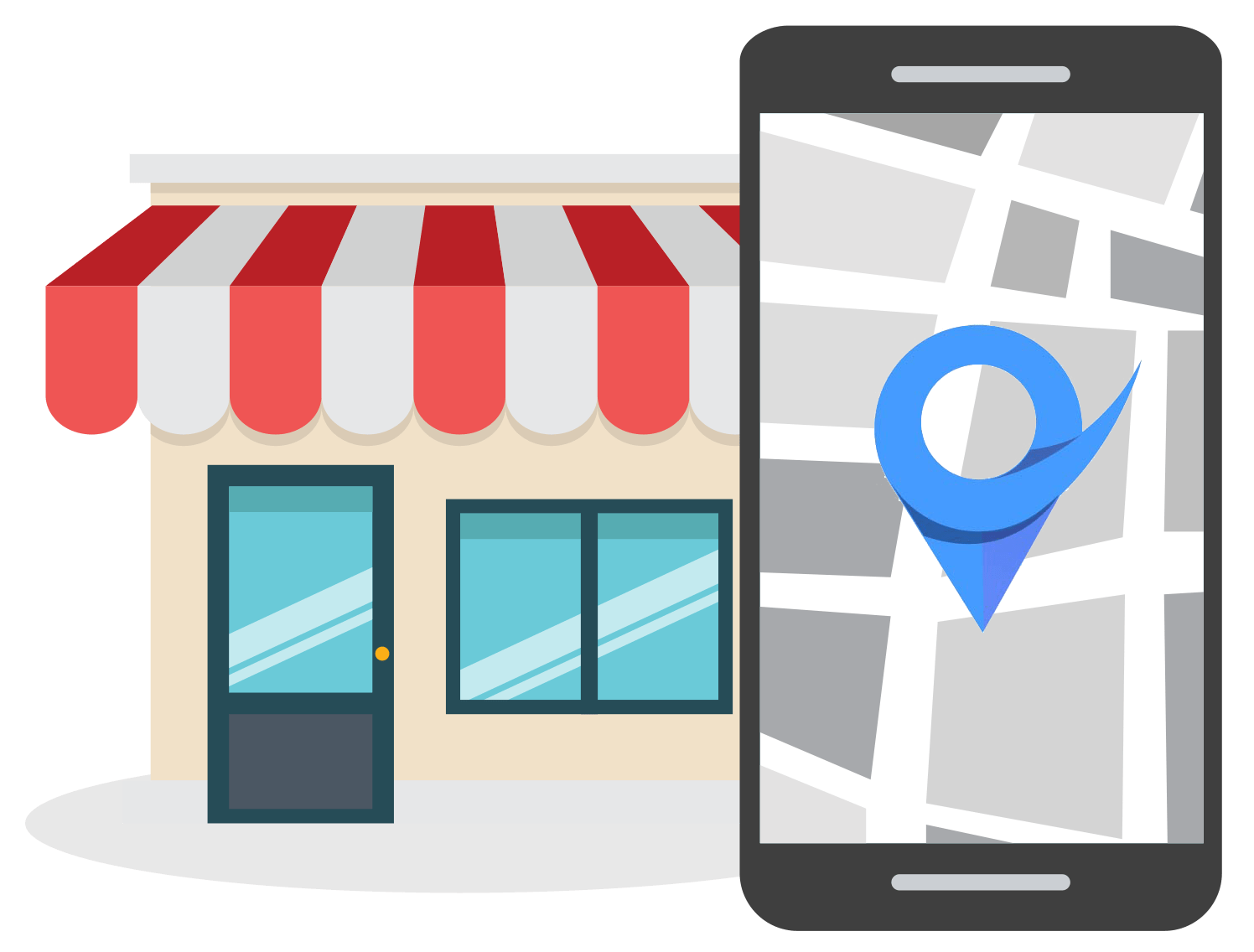10 Huge Local SEO Mistakes that can Ruin Your Rankings
Feb 28, 2025
Local SEO mistakes can hurt your business’s visibility, making it harder for potential customers to find you online.
In a world where most people use Google to find local businesses, restaurants, and service providers, even small errors can cost you valuable leads.
In this blog post, we're going to look at 10 of the most common local SEO mistakes that marketers and small business owners make. We also spoke to marketers and SEOs from leading digital agencies around the world to get their take on some of the most common local SEO mistakes that they see others making.
Local SEO Mistakes You Should Avoid
Not Optimizing Your GBP
Your Google Business Profile (GBP) is the foundation of your local SEO strategy, yet many businesses make the mistake of setting it up and then forgetting about it.
A common mistake I see in local SEO is companies creating a Google Business Profile (GBP) and then forgetting about it. People visit a store within a day of doing a local search, but you could lose customers if your GBP isn't up to date with correct hours, services, or new pictures.
- Georgi Todorov, Founder at Create & Grow
If you’re not actively optimizing and updating your GBP, you’re leaving money, traffic, and leads on the table.
Google uses this profile to determine when and where to show your business in local search results, and an outdated or incomplete profile can cost you valuable traffic, leads, and customers.
The only thing worse than having an incomplete Google Business Profile is not claiming it at all.
Not claiming your Google Business Profile (formerly Google My Business) is one of the worst mistakes that you can make as a business owner. That’s like opening a café and forgetting to put a sign outside. If Google doesn’t know you exist, neither do your customers.
- Isaac Bullen, Director of Marketing at 3WH
But winning in local SEO isn’t just about claiming your GBP, it also requires constant attention and updates.
Your business details, operating hours, services, and photos should always be accurate and up to date.
Google also rewards businesses that actively engage with their profiles by adding posts, responding to reviews, and answering customer questions. If you ignore your GBP, you risk being outranked by competitors who consistently optimize theirs.
Think of your GBP as your digital storefront. If it looks outdated, incomplete, or unresponsive, customers (and Google) will assume your business isn’t active or reliable.
Inconsistent NAP Across Business Listings
Your Name, Address, and Phone Number (NAP) must be 100% consistent across all online listings—otherwise, you could confuse search engines and hurt your local rankings.
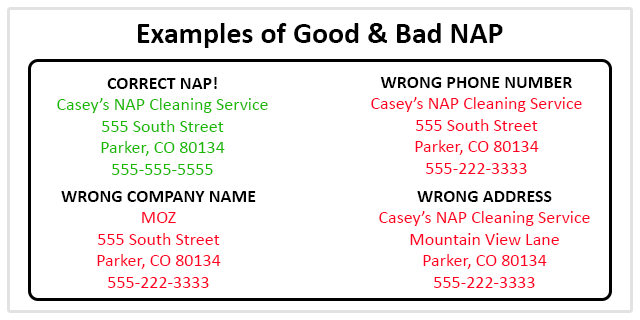
Google relies on NAP consistency to verify that your business is legitimate and trustworthy.
If your business name is slightly different on one directory (e.g., "Smith & Co. Plumbing" vs. "Smith and Company Plumbing") or if your phone number changes without being updated everywhere, search engines may struggle to determine which listing is correct.
This can lead to lower rankings or even missing out on local search results altogether.
Beyond just Google, your NAP details appear in local directories, business listing sites, social media profiles, and industry-specific platforms such as Digital Agency Network (for digital agencies) or Lawyer.com (for law firms and lawyers).
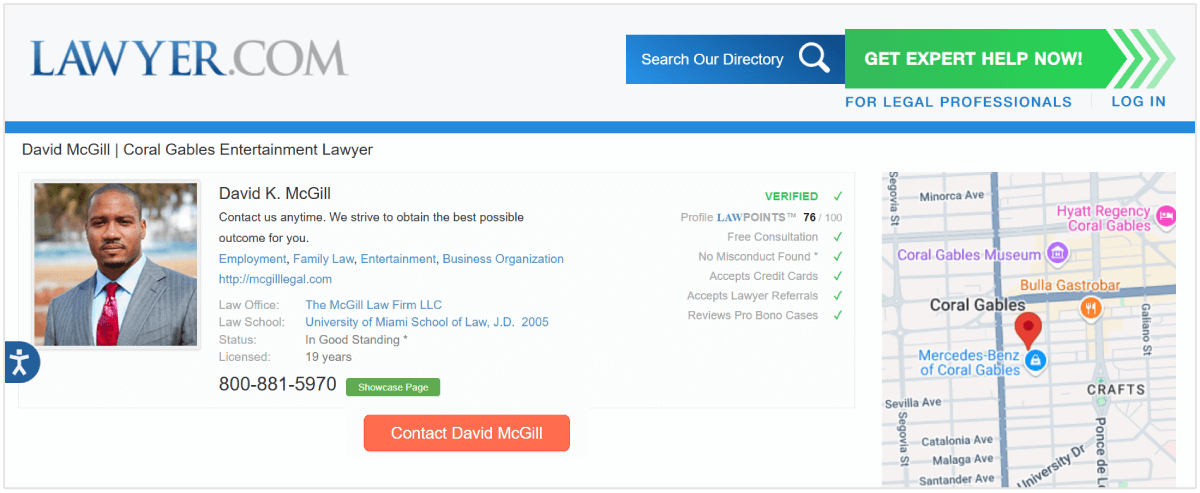
These citations act as trust signals for search engines, helping them confirm your business's authenticity. If your NAP information is inconsistent across different sources, it weakens that trust—leading to lost visibility in local searches.
To avoid this mistake, regularly audit your business listings and ensure your NAP information is identical everywhere.
Just as important – if not more so for local SEO – is maintaining consistent NAP (Name, Address, Phone number) details across your website and all external listings. Inconsistent information can confuse both search engines and potential customers, while also causing the latter to look elsewhere if they are unable to get in touch with you.
As such, it is vital to regularly audit your website and any directories you appear on. Bright Local, a tool specifically for local SEO, can audit citations to make sure they are all correct, while directory submissions can ensure you are visible in as many places as possible.
- Jamie Dinning, Head of SEO at Smart Monkey Marketing
Ignoring Local Keyword Research
Many small businesses make the mistake of not targeting the right local keywords, which means they miss out on potential customers searching for their products or services.
Local keyword research is essential because it helps you understand what your target audience is searching for and ensures your business appears in relevant local search results.
Without it, you might rank for general terms that don’t attract the right audience—or worse, not rank at all.
For example, a bakery in Cape Town shouldn’t just target broad keywords like "best bakery"—they should optimize for location-specific keywords like "best bakery in Cape Town", "wedding cakes in Cape Town", or "fresh bread near me".
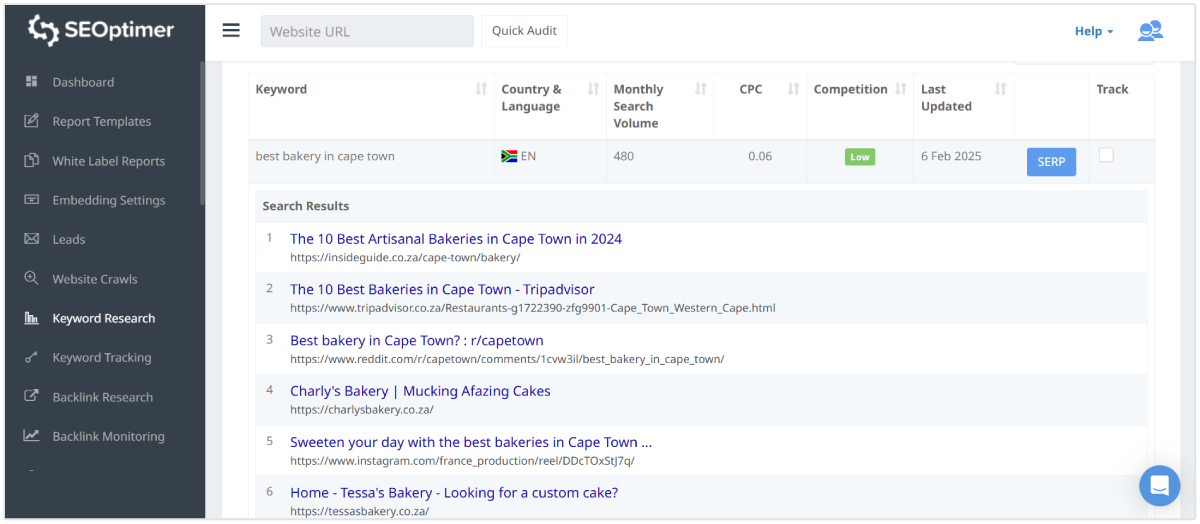
Local keywords help Google connect your business to nearby searchers, increasing your chances of appearing in the Local Pack, Google Maps, and organic search results.
Sasha Berson from Grow Law Firm, a digital agency specializing in SEO and marketing for law firms in Chicago says that many law firms (and businesses in general) make the mistake of not optimizing for local keywords.

Many law firms focus on generic terms like “personal injury lawyer” instead of “personal injury lawyer in Chicago.” This makes it harder to rank locally.
- Sasha Berson, Co-Founder and Chief Growth Officer at Grow Law Firm
Small businesses that actively optimize their content, website, and GBP with local keywords will have a significant advantage over competitors who ignore them.
Overstuffing Target Keywords
One of the biggest misconceptions in local SEO is that the more times you use a keyword, the better your chances of ranking. This leads many businesses to overstuff their content and GBPs with keywords, thinking it will improve their search visibility.
However, keyword stuffing does more harm than good.
Not only does it make your content unnatural and difficult to read, but Google also penalizes businesses that engage in this practice.
For example, a local dentist might think they need to repeat "best dentist in New York" in every sentence to rank higher.
Instead of creating helpful content, they end up with something like:
"If you’re looking for the best dentist in New York, our best dentist in New York provides the best dentist services in New York."
This type of content doesn’t just turn off potential customers—it also sends red flags to Google’s algorithm. Instead of improving rankings, keyword stuffing can actually lower your search visibility because it reduces content quality and user experience.
When a page on a website is crammed with loads of keywords to try and trick google into ranking it higher. It can make the content hard to read and gives users a poor experience. If you’re trying to rank for something like ‘SEO Liverpool’ you need to do other things than just cram the keyword all over your page.
- Jessica Hitchen, SEO Content Executive at Quirky Digital
To properly optimize for local SEO, focus on natural keyword placement and semantic keywords (related terms).
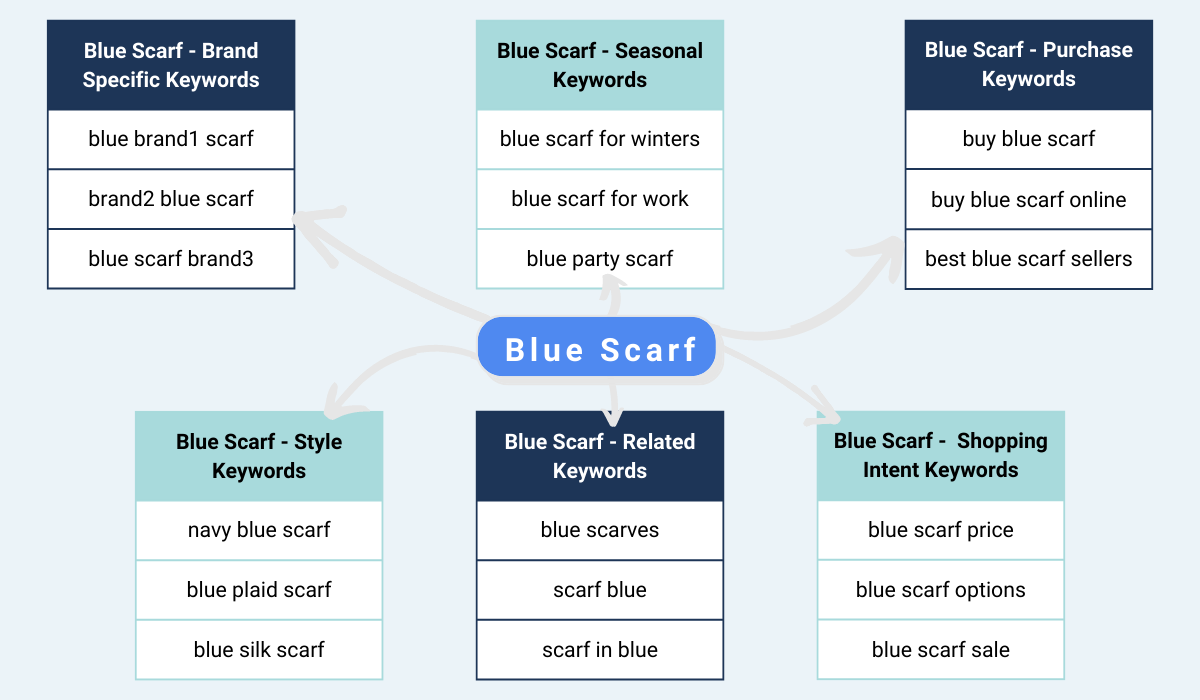
Use your target keyword in key areas like the title, meta description, headings, and within the content naturally, but don’t force it.
Google understands context, so using variations like “top-rated dentist in NYC” or “dental services in New York” will help you rank without overloading your content with the same phrase.
Not Having a Review Management Strategy
Google reviews can directly influence how your business appears in local search results, including the Local Pack and Google Maps. The higher the quantity and quality of your reviews, the better your chances of ranking at the top of local search results.
When customers leave positive reviews, it signals to Google that your business is trusted, relevant, and engaging.
This helps boost your credibility and increases your chances of appearing in local searches when people are looking for services in your area. Conversely, a lack of reviews or negative reviews can harm your ranking and deter potential customers from choosing your business.
But just having reviews isn't enough—you need a strategic approach to manage them effectively.
What I see all the time with local businesses failing to outperform competitors is that they don't manage their online reviews.
Think about it: How likely will you try something if your friend recommends it? That is exactly why online reviews are so important.
Make it easy for customers to give you an online Google review via your Google Business Review URL. Make this URL easily accessible to clients through QR codes within the store, email campaigns, or on your website.
- Jack Giblin, SEO Manager at 829 Studios
An effective review management strategy involves:
- Encouraging Customers to Leave Reviews: Make it easy for your satisfied customers to leave reviews. Send follow-up emails, include review links on your website or in receipts, and ask for reviews during the customer experience. The more reviews you have, the better your chances of appearing in search results.
- Responding to Reviews (Positive & Negative): Engage with your customers by responding to both positive and negative reviews. A thoughtful response to a negative review shows potential customers that you care and are willing to resolve issues.
- Monitoring Review Platforms Regularly: Set up alerts to be notified when a new review is posted. Don’t let reviews slip through the cracks so consistently check platforms like Google, Yelp, Facebook, and other directories. The quicker you respond, the more you show that your business is active and customer-focused.
- Staying Proactive with Negative Reviews: While negative reviews are inevitable, how you handle them can make all the difference. Address issues professionally, offer solutions, and take the conversation offline when necessary.
Having a solid review management strategy isn’t just about getting more reviews; it's about creating a reputation for reliability, professionalism, and customer care.
By actively seeking reviews, responding to feedback, and addressing concerns, you'll position your business as a trusted local leader—ultimately improving your local SEO rankings and boosting your credibility in your community.
Forgetting about Local Schema Markup
Many businesses overlook Local Schema Markup, but it’s an effective tool that can give you an edge in local SEO.
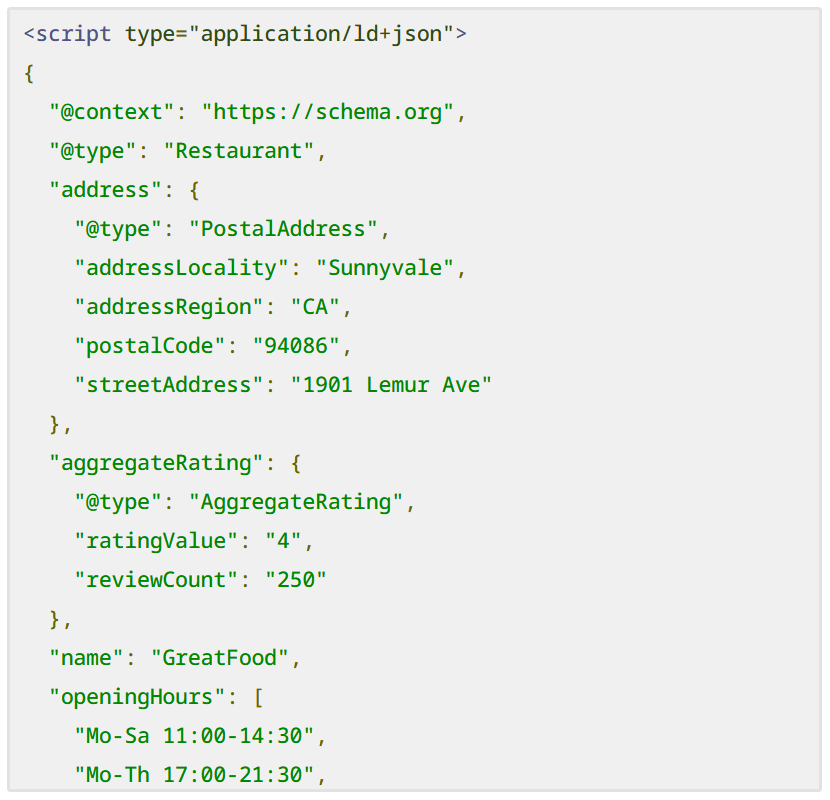
Schema markup is a type of structured data that helps search engines understand key details about your business, such as your name, address, phone number (NAP), business hours, services, and customer reviews.
Without it, Google has to work harder to interpret your business information, which could result in lower search visibility or incorrect details appearing in search results.
Neglecting Local Content Marketing
Many businesses fail to leverage the power of content in their local SEO strategy, missing out on a huge opportunity to connect with potential customers and improve their search rankings.
Local content marketing is about more than just promoting your products or services, but it also involves creating content that speaks directly to the needs, interests, and concerns of your audience.
Here are some tips for starting an effective local content marketing strategy:
- Create Local Guides & Resource Pages: Write detailed guides or resource pages for local customers. This could include things like local event calendars, how-to guides specific to your area, or tips on using your product in the local context.
- Write About Local News & Events: Stay involved in your community by writing blog posts about upcoming local events, news, or issues that directly affect your audience. Mention local partnerships, sponsorships, or community involvement.
- Leverage Local Case Studies & Success Stories: Show how your product or service has helped local customers or businesses. Sharing success stories in your area builds local trust and positions you as an expert in your market.
Inactive Social Media Profiles
Although social media profiles aren’t a direct ranking factor for local SEO, they still play a role in your overall online presence.
Ignoring your social media accounts can result in missed opportunities to drive local engagement, brand awareness, and customer trust—all of which contribute to stronger local search performance.
Active social media profiles help you stay visible in your community.
In addition, regularly sharing local news, promotions, and customer testimonials keeps your business top-of-mind for potential customers.
Not Optimizing for Mobile Users
With more people using mobile devices than desktops to browse the internet, having a mobile-friendly website is a necessity.
Potential customers are searching for your business, looking up directions, reading reviews, and even making purchases from their smartphones.
If your website doesn’t load properly or provide a good experience on mobile, you’re losing traffic, leads, and revenue to competitors who prioritize mobile optimization.
Another common mistake is to ignore mobile optimization. These days, most local searches take place on mobile devices. If your website is clunky or simply hard to navigate on a mobile device, you’ll frustrate potential customers and drive them straight to your competitors.
I’ve witnessed companies lose a ton of foot traffic just because the phone number was not clickable on their mobile website.
- Marc Hardgrove, CEO at The HOTH
Studies show that over 64% of Google searches happen on mobile devices. When people search for local businesses, they often do so while on the go, whether they’re looking for a nearby restaurant, a plumber, or a retail store.
If your website isn’t optimized for mobile, potential customers might leave immediately, increasing your bounce rate and signaling to Google that your site isn’t user-friendly.
Not Tracking Local SEO Performance
Tracking your local SEO performance is crucial to understanding whether your efforts are paying off and where you need to improve.
Without proper tracking, you could be flying blind, unsure of how well your website is ranking, whether your Google Business Profile is optimized, or how your local competitors are performing.
Regular monitoring ensures you stay on top of key performance indicators (KPIs), like local rankings, traffic, conversions, and engagement, which directly impact your visibility in local search results.
To help you stay on top of your local SEO game, we offer a Local Rank Tracking tool.
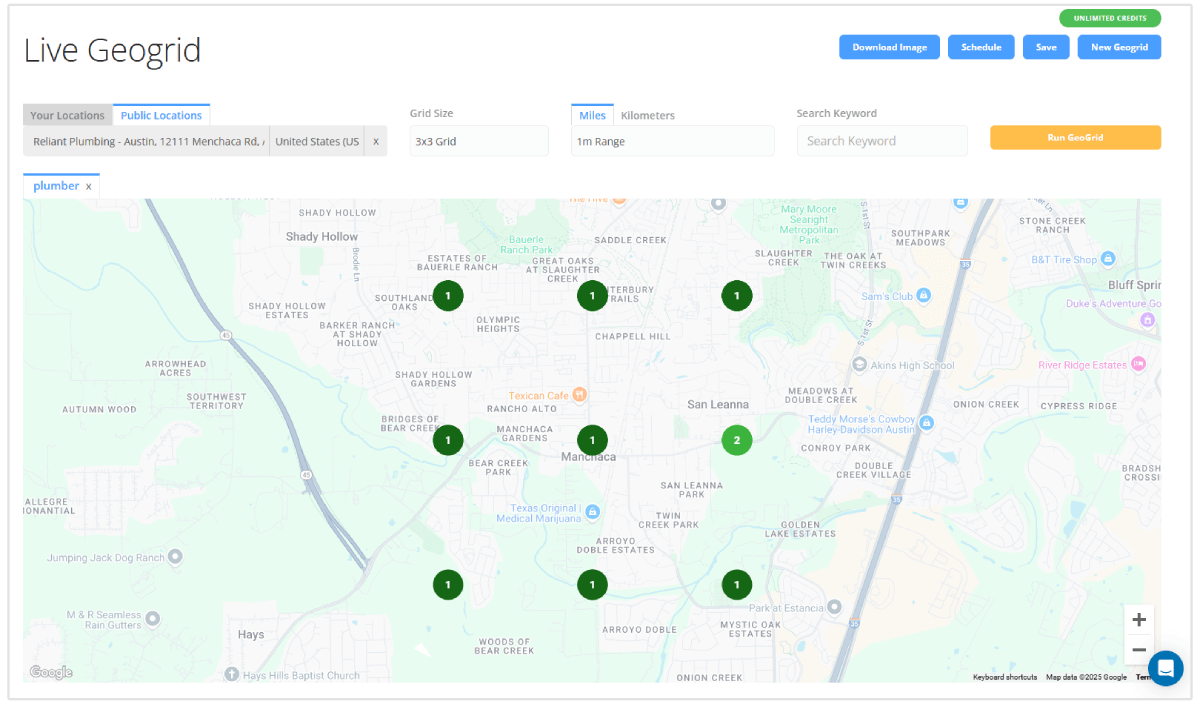
This tool allows you to track your local rankings across various locations, monitor your position for target keywords, and get insights into how your website is performing on a local level.
Local SEO Mistakes FAQ
Why is local SEO important for small businesses?
Local SEO helps small businesses increase their visibility in local search results, making it easier for potential customers to find them when searching for products or services nearby.
Since many searches have local intent (e.g., "coffee shop near me"), optimizing for local SEO ensures that businesses appear in Google’s Local Pack, Maps, and organic search results.
This leads to more foot traffic, website visits, and ultimately, more sales.
What is the best way to optimize my Google Business Profile?
While there's no one best way to optimize a GBP, a few key tactics can make a big impact:
- Keep Your Information Accurate & Complete: Ensure your business name, address, phone number (NAP), hours, and categories are accurate and up to date.
- Encourage & Respond to Reviews: Positive reviews boost credibility and local rankings. Responding to all reviews (both good and bad) shows engagement and trustworthiness.
- Post Regular Updates & Photos: Adding fresh content, promotions, events, and high-quality images signals to Google that your business is active and relevant.
Consistently updating your GBP and engaging with customers helps improve visibility and rankings in local search.
How can I encourage more reviews for my business?
To encourage more reviews, ask satisfied customers directly and make it easy for them by providing a link to your review platform. You can create a review link for both Google and Yelp profiles.
Does schema markup really help with local SEO?
Yes, schema markup helps search engines understand important information about your business, such as your location, hours, services, and reviews.
This structured data enhances your visibility in search results, allowing Google to display rich snippets like your address, phone number, and business hours directly in search results.
While schema markup doesn't directly impact rankings, it can improve click-through rates and overall search visibility, ultimately benefiting your local SEO efforts.
Conclusion
Avoiding common local SEO mistakes is essential for improving your business’s online visibility and attracting more local customers.
From optimizing your Google Business Profile to managing reviews and ensuring your website is mobile-friendly, each of these strategies plays a key role in boosting your local search rankings.
By implementing the tips outlined in this post and continuously monitoring your performance, you can set your business up for long-term local SEO success.








